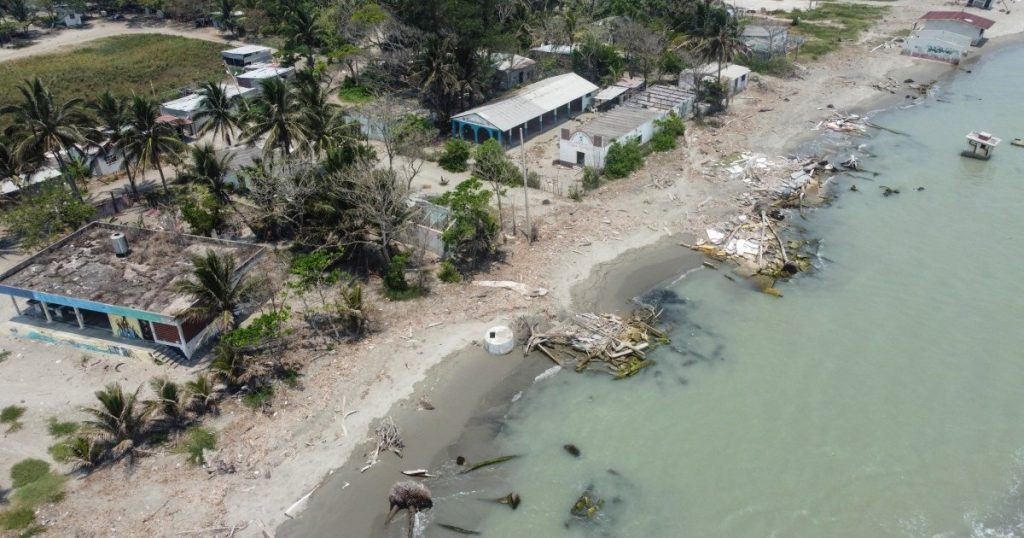The effects of climate change are becoming increasingly evident in Mexico, a major fossil fuel producer. In the village of El Bosque in Tabasco, abandoned homes are slowly being swallowed by the sea, symbolizing the impact that rising sea levels are having on coastal communities. The school where 24-year-old Adrian Perez used to attend classes now stands in ruins, serving as a reminder of what has been lost. Heatwaves have also been hitting Mexico, with temperatures soaring in Tabasco and across the country, sparking debate as the country prepares for a presidential election on June 2.
Environmental group Greenpeace has officially recognized El Bosque as the first community in Mexico to be displaced by climate change, leading to the approval of its relocation by the Tabasco state congress in February. The village, which once housed around 700 residents, sits on a small peninsula in the Gulf of Mexico, where oil and gas extraction play a significant role in the economy. Despite efforts by the government to achieve energy self-sufficiency through projects like the new oil refinery in Tabasco, the area has been one of the hardest hit by heatwaves this year, with temperatures reaching 40 degrees Celsius (104 degrees Fahrenheit).
This year’s heatwaves have led to 48 heat-related deaths across Mexico, with even Mexico City experiencing record-high temperatures. Water shortages have become a growing concern, as below-normal rainfall last year has exacerbated the situation. The average annual availability of water per capita in Mexico has fallen by 68 percent since 1960, according to the Mexican Institute of Competitiveness. President Andres Manuel Lopez Obrador has focused on promoting fossil fuel production to ensure energy independence, despite international pressure to reduce greenhouse gas emissions.
In an effort to offset the impact of fossil fuel production, the Mexican government has launched a reforestation program that aims to plant 1 million hectares of trees. However, climate campaigners like Pablo Ramirez of Greenpeace Mexico warn that there is currently no public policy in place to address the serious impacts of climate change, which are expected to worsen in the future. The melting of glaciers and ice sheets has caused global sea levels to reach record highs, putting coastal communities like El Bosque at risk of being swallowed by the sea. The destruction caused by climate change serves as a stark reminder of the urgent need for action to mitigate its effects and protect vulnerable communities in Mexico and around the world.


